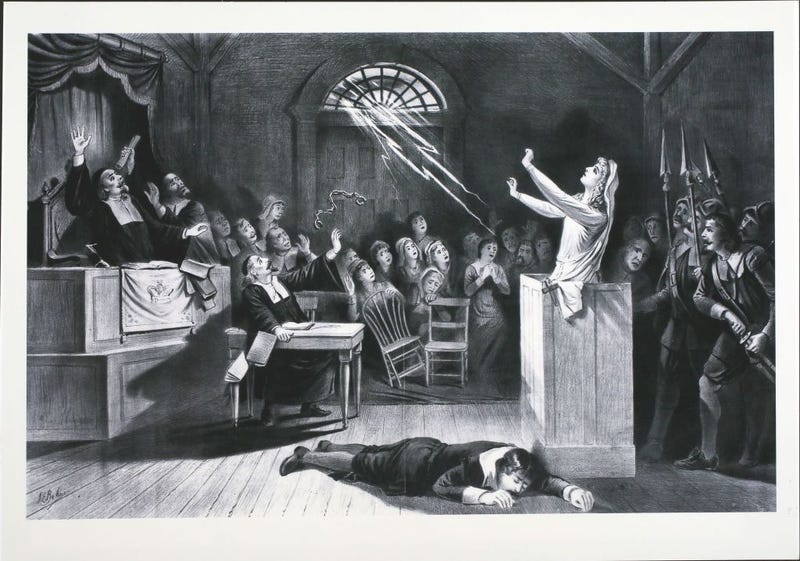
Elizabeth Johnson Jr. of North Andover, Mass., was 22 years old when she was convicted of being a witch during the Salem With Trials in 1693. Now – more than 300 years later – she has finally been exonerated.
Members of the state Senate this week passed legislation proposed by Democrat State Sen. Diana DiZoglio, who was inspired by a local middle school civics class to clear Johnson’s name.
Although Johnson was convicted of being a witch, she was never hanged, according to the Andover Townsman. By 1711, she was the only surviving “witch” who had not successfully petitioned to have her name cleared.
Although previously legislation was passed to clear the names of people who had been hanged in the trials, it did not apply to Johnson. DiZoglio initially filed her legislation last February on behalf of Johnson, who never had children and therefore did not have family advocating for her name to be cleared.
Instead, student’s in Carrie LaPierre’s 8th grade civics class organized to get justice for Johnson throughout the school year, according to Democrat Massachusetts State Sen. Cindy Creem.
“This bill wouldn’t have been possible without North Andover Middle School teacher Carrie LaPierre and her amazing civics class, whose hard work and research were essential to its filing,” DiZoglio said Thursday of legislation exonerating Johnson.
Creem linked Johnson’s conviction to the leaked Supreme Court draft opinion for the Dobbs v. Jackson Women’s Health case that would overturn abortion protections covered by the landmark 1970s Roe v. Wade decision. Justice Samuel Alito’s draft opinion favorably cites Matthew Hale, a 17th century English jurist who presided over several trials in the 1660s in which women were convicted of witchcraft and sentenced to hang.
“Of course, the fact she was unmarried and childless is likely why she was targeted for accusations of witchcraft in the first place,” said Creem. “Women in 1690s Salem were expected to fill narrowly understood roles of wife, mother, and homemaker.”
She said the Salem Witch Trials could be seen “as a moral panic about how some women chose to lead their lives, and as an effort to restrict women’s autonomy and control their choices about marriage and reproduction.”
The Supreme Court is expected to announce a final version of the opinion in June.


